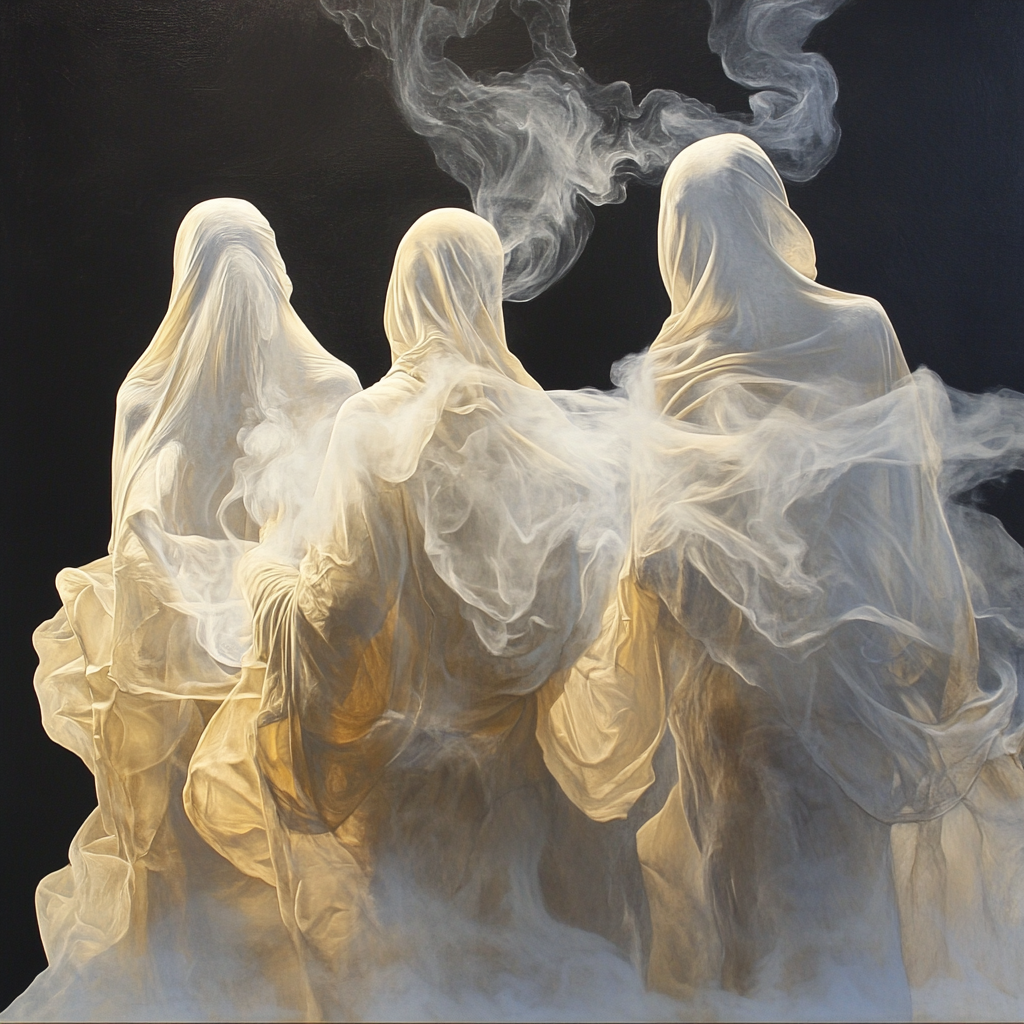Why Humans Might Actually Be Wired to Believe in Ghosts
It’s almost funny how many people say they don’t believe in ghosts—until the house creaks at midnight or they get that sudden, unmistakable chill running down their spine.
Suddenly, it’s not about belief anymore. It’s about instinct. That fast, electric feeling that something might be standing right behind you, even if you can’t see it.
And that’s the thing nobody really talks about—maybe belief in ghosts isn’t something we’re taught. Maybe it’s something deeper. Something we’re built for.
The truth is, we’re hardwired for survival first, logic second.
Thousands of years ago, it wasn’t the person who calmly analyzed every rustle in the bushes that survived. It was the one who ran. Our ancestors didn’t get to sit around weighing the odds of whether a snapping branch was just the wind or something hunting them. They reacted fast, they stayed alive, and they passed those survival instincts down to us.
Today, we’re not dodging predators on the savannah, but the wiring hasn’t changed. Our brains are still on high alert for anything that feels “off.”
When we hear an unexplained sound or feel like we’re being watched, our brains leap into action. They try to connect the dots, even when the dots don’t really connect. "Ghost" becomes a label, a way for our brains to file away the unexplainable under "known threat," even if logically, we know better.
Image Credit: Midjourney AI
Scientists even have a name for this pattern-hunting habit: apophenia.
It’s the tendency to see connections between unrelated things. It’s why we see faces in the clouds, or think we hear someone calling our name when no one’s there.
It’s a feature, not a flaw—because being able to spot hidden dangers (even imaginary ones) gave our ancestors an edge. In a way, ghost sightings might just be our ancient alarm systems glitching a little... but still trying to protect us.
But that’s only part of the story.
There’s also something deeply emotional about why we cling to the idea of spirits lingering around us. Humans are social creatures. We're not built to handle absence easily. When someone we love dies, our brains—and our hearts—struggle with that finality.
Somewhere deep inside, it’s easier to imagine that they’re still here, just in another form. Watching over us. Visiting us. Comforting us.
Believing in ghosts might not just be about fear...
It might be about love.
Studies have even shown that after major losses, people often report “sensing” their loved ones—smelling their perfume, feeling a brush on their arm, hearing a familiar voice in a dream.
Psychologists call it “grief hallucinations.” But even knowing the scientific label doesn’t really take away the emotional truth of the experience. Sometimes, feeling like someone’s still with you is exactly what you need to survive the loss.
And then there’s the architecture of the places we inhabit.
Old houses, dim hallways, abandoned hospitals—they all mess with our senses.
Cold spots, echoes, shadows that flicker at the corner of your vision.
These environments amplify the feelings we’re already primed to have.
Our brains fill in blanks when information is missing. It’s how we make sense of the world. In a drafty, creaky building with weird acoustics, your brain might “hear” whispers because it’s trying desperately to create meaning out of the noise.
Even our senses can betray us.
Infrasound—low-frequency sound waves below the range of human hearing—can cause anxiety, unease, and even hallucinations. Some studies found that places thought to be haunted often had infrasound present, creating that eerie feeling even when nothing "ghostly" was actually happening.
But here’s the thing:
Just because we can explain the wiring, doesn’t mean we’ve explained everything.
There are countless stories that defy easy logic. Encounters that make even the most skeptical minds hesitate.
Sometimes, the feeling that someone is there, the sense that you're not alone, the way the air seems to shift around you—it doesn’t feel like a survival glitch or a trick of sound.
It feels real.
And maybe that’s the point.
Maybe belief in ghosts is a blend of everything: our biology, our emotions, our memories, and maybe—just maybe—something truly beyond us.
Whether you believe in them or not, ghosts are stitched into the fabric of our existence. They live in our stories, our fears, our hopes. They remind us that the line between seen and unseen is thinner than we like to admit.
They remind us that mystery still exists.
And honestly? In a world obsessed with explanations and facts and instant answers, a little mystery might just be the thing that keeps life feeling magical.
If You Loved This, You’ll Love These Too:
Have You Heard The Latest Episode of GBRLIFE of Crimes?
GBRLIFE has so much more:











